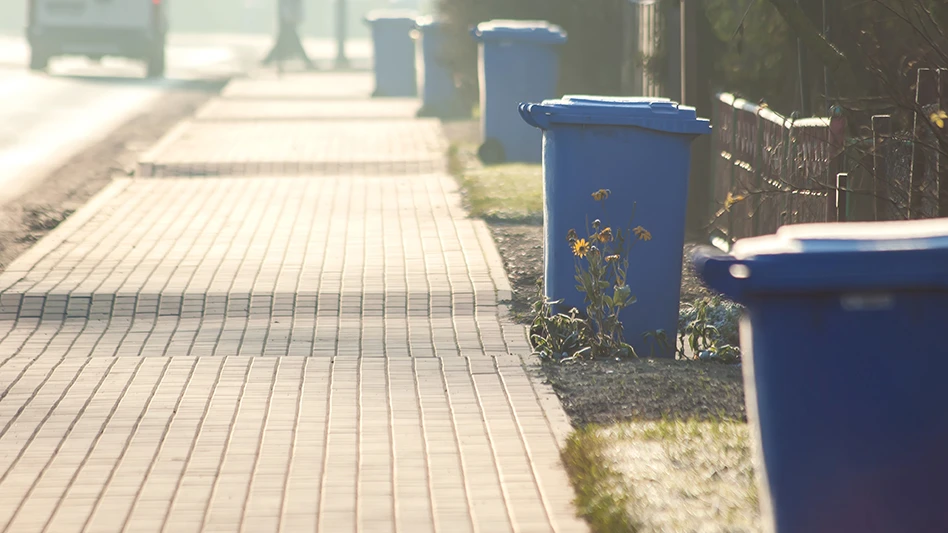
Aleksej | stock.adobe.com
Houston-based waste and recycling services provider WM has released a new report, which emphasizes the importance of collaboration between consumer households, businesses, policymakers and local municipalities to improve recycling in the U.S. and offers insight into education and access gaps, identifying opportunities for greater collaboration.
“Recycling is essential to enabling the circular economy, but it works best when we work together,” says Tara Hemmer, chief sustainability officer at WM. “WM's research shows that many Americans are eager to recycle, but they need more education and greater access to recycling in order to build confidence in the practice."
RELATED: WM cites disposal, recycling for strong earnings
The Futurum Group, an Austin, Texas-based research and advisory firm, was commissioned by WM to conduct two online surveys of 1,045 consumers and businesses in July 2024 regarding recycling behaviors and perceptions. The consumer survey included 518 individuals older than 18 in the U.S., balanced to reflect U.S. census demographics. The business survey included 527 employees from companies across the U.S., including both recycling program service or contract decision-makers within the company, employees responsible for managing recycling programs and general staff.
The survey revealed that many Americans want to recycle but lack an understanding of how recycling works. Of those surveyed, 44 percent say they are looking for ways to expand their recycling practices in the future, and 86 percent of those who recycle say they are not confident their plastics are being recycled.
Data show 45 percent of respondents cite a lack of knowledge about what can and cannot be recycled as their biggest barrier, and 64 percent say their involvement would increase if they knew more about what to recycle and how.
Where consumers live can have an impact on their recycling habits as well. Rural areas face greater accessibility issues; 50 percent of respondents in rural areas reported dealing with more inconveniences that led to lower rates of recycling, such as having to drive long distances or to a different site to recycle.
Creating products with recycled content can be a differentiator for brands and potentially drive consumer purchase, WM says. Data indicate 75 percent of those surveyed are more likely to buy products from companies that include recycled content in their products. However, as many as 60 percent of those same respondents report not having clarity on which brands use recycled content in their products, calling for additional education so that consumers have a better understanding.
The findings emphasize that a robust recycling infrastructure relies on collaboration among consumer households, businesses, policymakers and local municipalities. WM says it is committed to advancing these efforts through its planned $1.4 billion investment to upgrade and build approximately 40 recycling facilities between 2022 and 2026.
"As the demand for recycled materials continues to grow, WM is driving solutions alongside our communities and customers by investing in technology that can make recycling more efficient, building new recycling facilities in areas that previously lacked access and helping consumers and businesses understand what and how to recycle," Hemmer says.
Latest from Recycling Today
- Alberta Ag-Plastic pilot program continues, expands with renewed funding
- ReMA urges open intra-North American scrap trade
- Axium awarded by regional organization
- China to introduce steel export quotas
- Thyssenkrupp idles capacity in Europe
- Phoenix Technologies closes Ohio rPET facility
- EPA selects 2 governments in Pennsylvania to receive recycling, waste grants
- NWRA Florida Chapter announces 2025 Legislative Champion Awards





